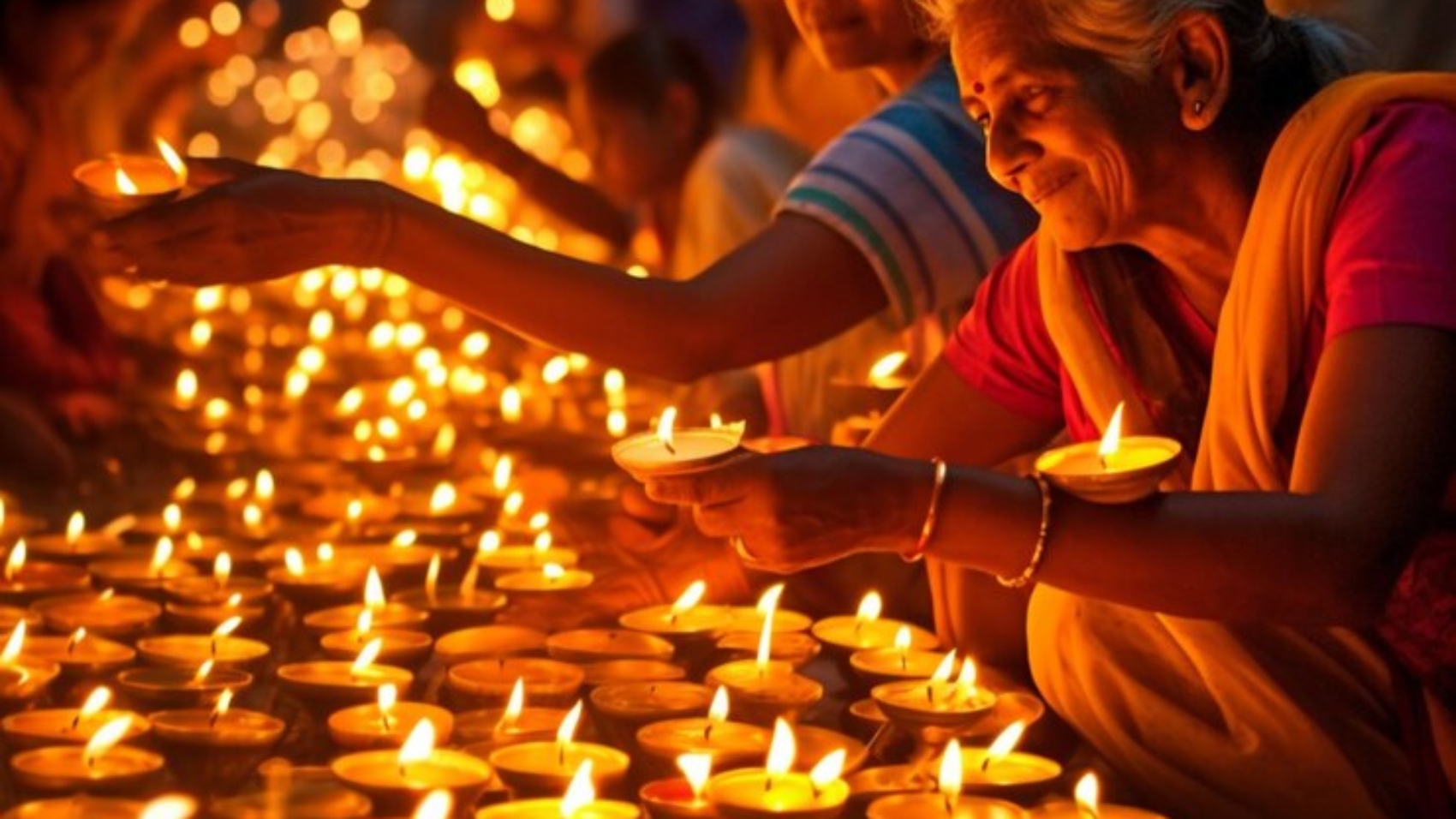Hinduism is often seen as a diverse yet complex religion. Although the philosophies of Hinduism are accepted around the globe, it might be quite difficult to understand it as a religion. Moreover, most of the beliefs that people have about Hinduism are not even true. This blog is to clear all the facts about Hinduism and answer one most important question “Why does Hinduism have so many Gods?”
What is Hinduism?
In simple words Hinduism is a “way of life” or more accurately, a compilation of many traditions and philosophies that guide us to lead our lives in a certain way. Hinduism is referred to as a “dharma” which has a deeper meaning than the word “religion”. Unlike the generally known point of view, Hinduism believes in “One Supreme power” that is the creator of mankind and has the ability to protect or even destroy it when necessary. It does not force any being to worship yet, provides patience, fulfilment, compassion and peace to the one who does.
How did it originate and how did it get its name?
Although the word “Hinduism” is only as old as the colonial period, the word “Hindu” dates back to more than 4000 years. Initially, the term “Hindu” was more of a geographical term than religious. It was used for the people living around the Indus river (known as Sindhu in Sanskrit). The people from some other parts of the world were not able to pronounce it and thus “Sindhu” got improvised as “Hindu”. During the Indus Valley civilization, they had established certain rules for the society and defined a certain way of conducting life. Gradually, this came to be known as the “Hindu” religion altogether. The term “Hinduism” was coined only recently around 1830 by Indians who opposed British colonialism and wanted to establish a distinct identity for their community.
Now let’s dive into the main question, which is, “Why does Hinduism have so many Gods?”
The logical reason
Since the ancient times, when the religion thing was not even clearly termed, the people had a habit of being thankful to nature for letting them use its resources. So they used to show gratitude by treating them as “God” because it helped them sustain. That’s the reason why there are gods for all natural resources like God of Earth, God of Mountain, God of Wind, God of forest and so on. Later on, people started personifying and attributing them just to bring a sincerity towards them. As a sign of worship, man used to nurture the resources in return of using it, for example, planting more trees and watering them. With the passage of time, people started blindly following this “rule” of physical offerings, which is not even compulsory.
The mythological reason
As mentioned earlier, Hinduism believes in “One Supreme Power” which has three main forms, that are, Brahma-the creator, Vishnu– the sustainer, Shiva– the destroyer. All other Hindu deities are just the incarnation of these Gods in the human world like Lord Rama, Lord Krishna, Lord Ganesha, etc. The incarnations took place mostly to end some evil being that was a huge threat to mankind and could not be tackled by a normal person. It can also be said that they were just great men blessed with some special powers, born into the world with a motive to end evil.
Does it promote idol worship and physical offerings?
These great men did a lot for the welfare of the society and achieved some unpredictable milestones. Therefore, people started to worship them and offer them their favourite delicacies just to make them happy, similar to what we might normally do for someone whom we are grateful for. They continued to be worshiped throughout the generations, even when they were not physically present as it was believed they would bless them. The Hindu Guru’s formulated the idea of idol worship just to increase concentration during prayers. Further, people started to worship the idols with physical offerings like sweets and milk. As the idols were made in an open space, the offerings would generally be eaten up by the insects, birds or animals which made it look like it is actually “accepted by God”. This further promoted the idea of idol worship and physical offerings to another level. At that point, there was nothing wrong with it as it was being consumed by the needy, who are also a part of nature. But in recent times, this has turned into blind faith, where people are unaware of where their offerings go. Sadly, much of it goes into drains which is a wrong practice, and something that needs awareness.
Why do some people mostly worship a particular God?
This is solely because of the fact that some people relate more with a particular God because of their nature and background. For example, Lord Krishna was the king of Dwarka, a place in Gujarat. You will find most of the people in Gujarat worship Lord Krishna the most as they might feel a special connection towards their character. This can vary with respect to other aspects as well but the idea is to have faith and pray irrespective of expecting anything in return.
Hope this blog cleared all that you had in mind about “Hinduism” and the reason behind so many Gods. Share this with anyone you think might be curious about it and let us know how you liked it.
Also If you’re planning your trip to India, we would be delighted to host you. You can mail us at mumbai@boundlessexplorism.com or send us a Quick Whatsapp message.
